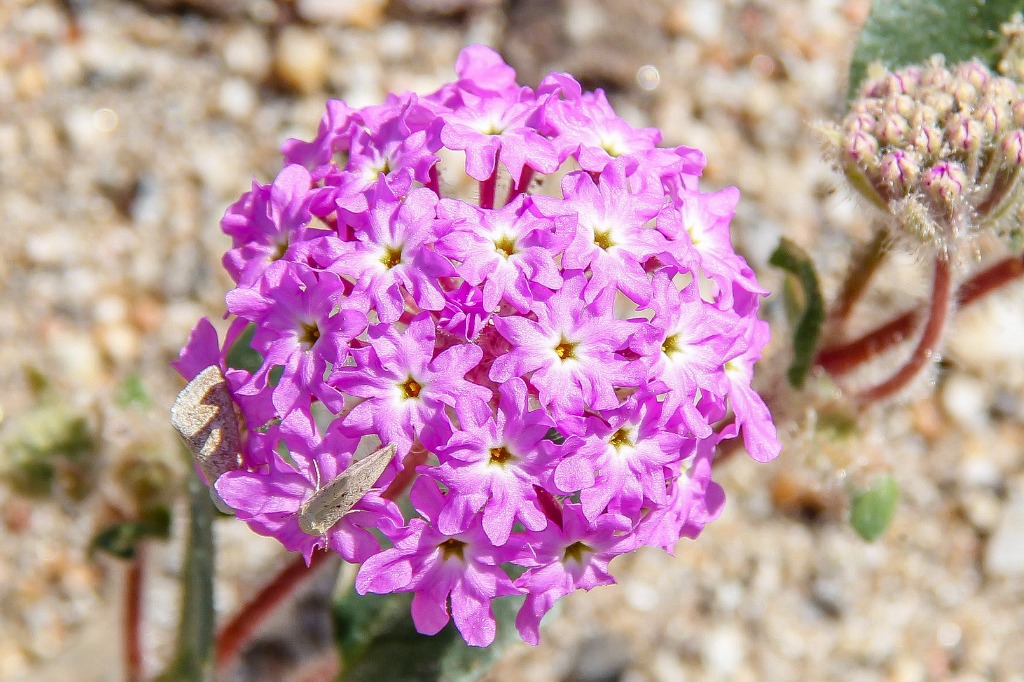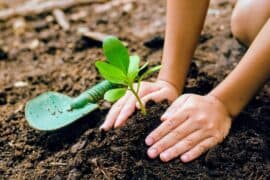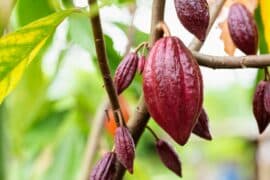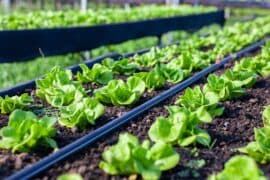Mojave sand-verbena
(Abronia pogonantha)

Description
Abronia pogonantha is a species of flowering plant in the four o'clock family (Nyctaginaceae) known by the common name Mojave sand-verbena. It is native to California and Nevada, where it grows in the Mojave Desert, adjacent hills and mountains, and parts of the San Joaquin Valley in the Central Valley. This is an annual herb producing prostrate or upright glandular stems to about half a meter long. The petioled leaves are mainly oval-shaped and up to 5 centimeters long by 3 wide. The plant blooms in an inflorescence of many white or pink flowers, each with a tube throat up to 2 centimeters long. The fruit is a winged, heart-shaped body about half a centimeter long. Abronia pogonantha is a species of Magnoliopsida described by Anton Heimerl. Abronia pogonantha belongs to the genus Abronia, and the family Nyctaginaceae. Abronia, the sand-verbenas or wild lantanas, is a genus of about 20 species of annual or perennial herbaceous plants in the family Nyctaginaceae. Despite the common names, they are not related to Verbena (vervains) or lantanas in the family Verbenaceae. They are closely allied with Tripterocalyx. They are native to western North America, from Alberta and Saskatchewan, Canada, south to west Texas, California, Baja California and central Mexico, growing on dry sandy soils. Abronia macrocarpa, a Texas endemic, is protected under the Endangered Species Act. Abronia ammophila, the Yellowstone sand verbena, is a plant unique to Yellowstone National Park's lakeshores and is endemic to the park. Only a few species are widespread, and many are quite rare. They make very attractive garden plants for hot, dry sandy sites. Abronia, the sand-verbenas or wild lantanas, is a genus of about 20 species of annual or perennial herbaceous plants in the family Nyctaginaceae. Despite the common names, they are not related to Verbena (vervains) or lantanas in the family Verbenaceae. They are closely allied with Tripterocalyx. They are native to western North America, from Alberta and Saskatchewan, Canada, south to west Texas, California, Baja California and central Mexico, growing on dry sandy soils. Abronia macrocarpa, a Texas endemic, is protected under the Endangered Species Act. Abronia ammophila, the Yellowstone sand verbena, is a plant unique to Yellowstone National Park's lakeshores and is endemic to the park. Only a few species are widespread, and many are quite rare. They make very attractive garden plants for hot, dry sandy sites.
Taxonomic tree:







